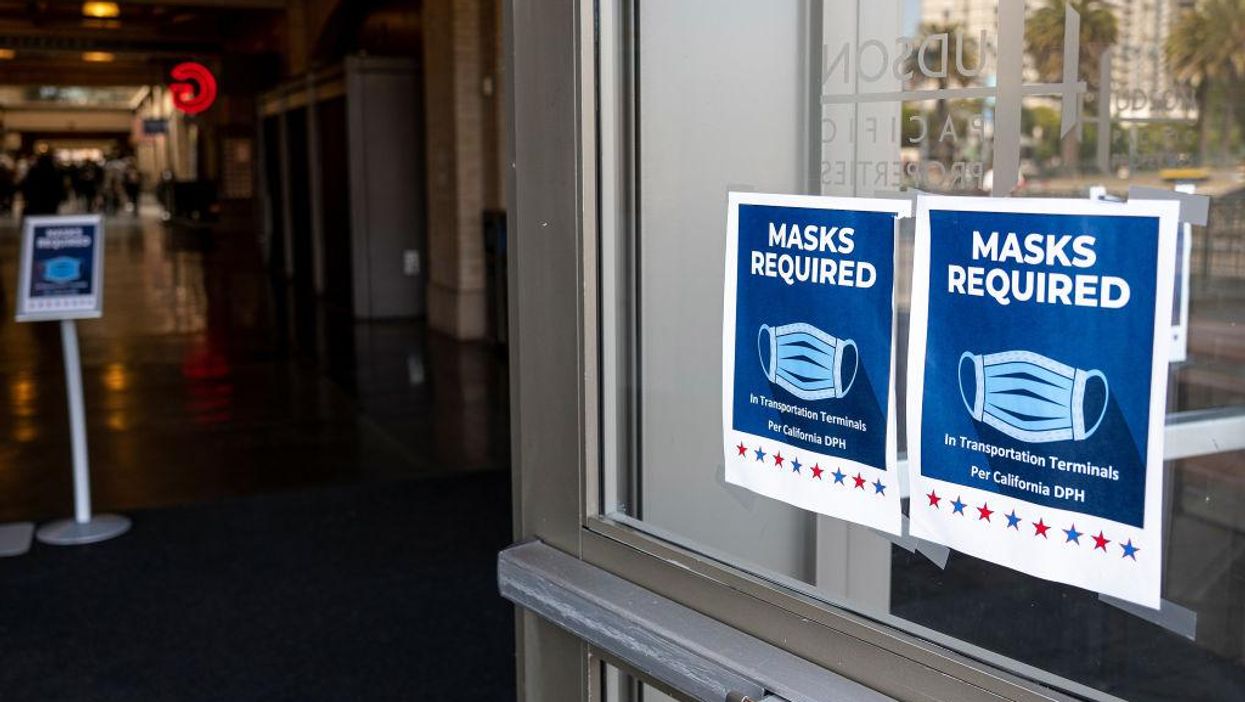
David Paul Morris/Bloomberg via Getty Images

Vaccination alone will not be able to stop the spread of new coronavirus variants and so people will need to wear masks and use other preventative measures until the fight against COVID-19 is complete, a new study claims.
The study, published Friday in Nature's "Scientific Reports," follows unpopular new guidance issued by the U.S. Centers for Disease Control and Prevention that recommends Americans once again mask up in areas where the virus is surging — even if they're vaccinated.
The team of researchers reportedly applied a mathematics model to the rate of transmission manifested by the coronavirus pandemic to predict how vaccination efforts may actually encourage a vaccine-resistant mutation of the virus.
Their outworkings aligned with a scientific concept known as "selective pressure," or the force that drives an organism to evolve. In essence, the team claims, a fast rate of vaccination coupled with the relaxation of masks and social distancing applies selective pressure on the SARS-CoV-2 virus to evolve.
"We found that a fast rate of vaccination decreases the probability of emergence of a resistant strain," the researchers wrote. "[But] counterintuitively, when a relaxation of non-pharmaceutical interventions happened at a time when most individuals of the population have already been vaccinated, the probability of emergence of a resistant strain was greatly increased."
Consequently, the scientists suggest "that policymakers and individuals should consider maintaining non-pharmaceutical interventions and transmission-reducing behaviors throughout the entire vaccination period."
"When most people are vaccinated, the vaccine-resistant strain has an advantage over the original strain," said Simon Rella of the Institute of Science and Technology Austria, one of the study's researchers, according to CNN.
"This means the vaccine resistant strain spreads through the population faster at a time when most people are vaccinated," he added.
Another scientist, Fyodor Kondrashov, also part of the Austrian institute, said this is likely the case in regard to the highly infectious Delta variant.
"Generally, the more people are infected, the more the chances for vaccine resistance to emerge. So the more Delta is infectious, the more reason for concern," Kondrashov said. "By having a situation where you vaccinate everybody, a vaccine-resistant mutant actually gains a selective advantage."
The report comes alongside a "pivotal discovery" about the Delta variant that led the CDC to update its mask guidance. The CDC's study reportedly found that the Delta variant produced a similar amount of viral load in both vaccinated and unvaccinated individuals that had been infected.
"High viral loads suggest an increased risk of transmission and raised concern that, unlike with other variants, vaccinated people infected with Delta can transmit the virus," Dr. Rochelle Walensky, the agency's director, said in a statement.